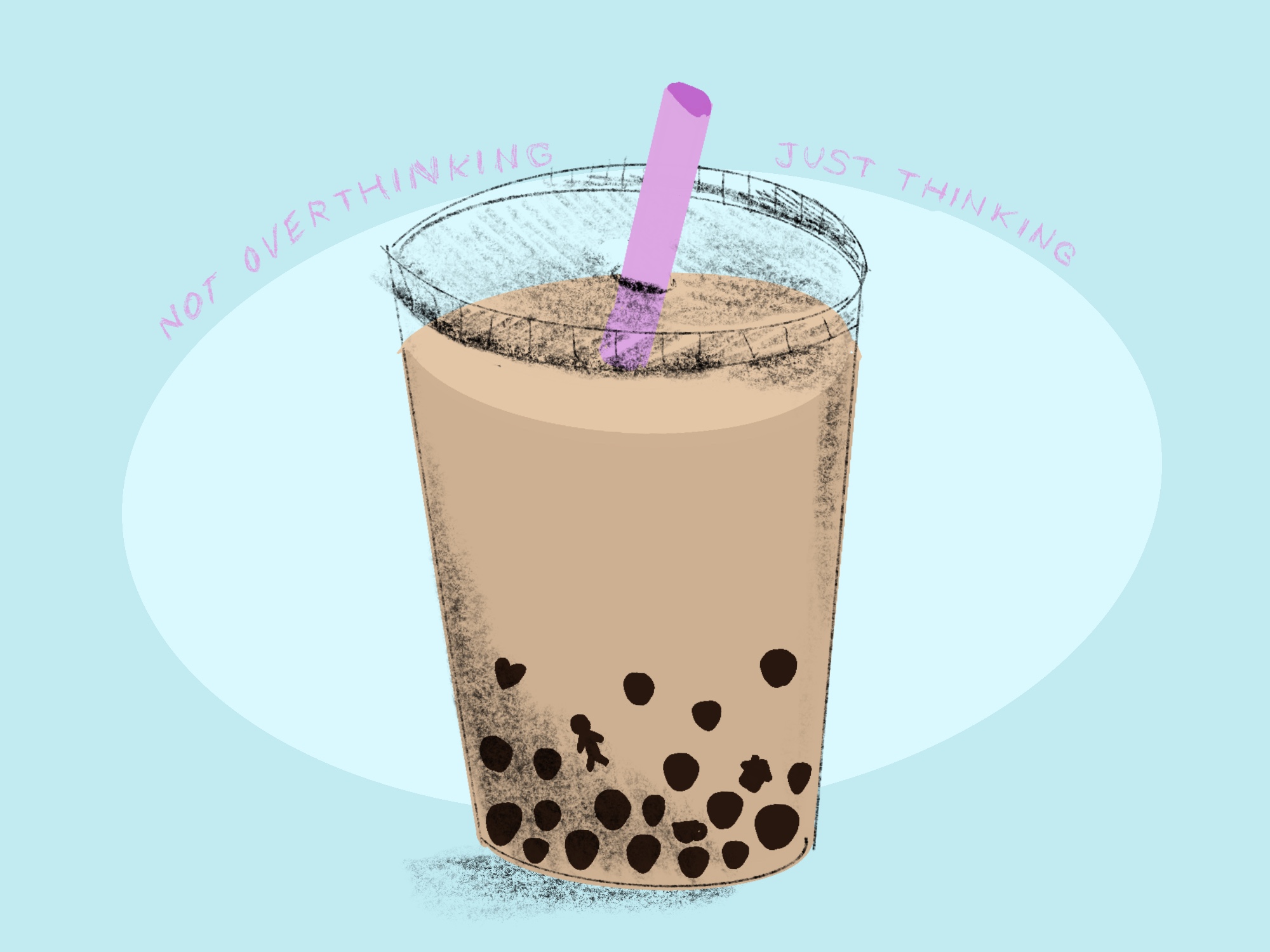I love boba. The endless combinations of drinks and toppings make it a treat I consistently return to. I have fond memories of going to a myriad of boba places around the Bay Area.
Recently, I have been thinking about boba a lot, not because I’m craving it — although I always am — but because of the commentary I have seen online. 
Just the other day, a video popped up on my TikTok “For You” page of actor Simu Liu, who spoke out against the cultural appropriation of boba on “Dragons’ Den.”
“Dragons’ Den” is a game show where entrepreneurs pitch their ideas and business models to a panel of Canadian executives in order to receive money to grow their business. If you’ve ever seen “Shark Tank,” “Dragons’ Den” is similar.
The clip that I saw opened with a pitch for a bottled drink company called Bobba. Liu was asking the Bobba business owners if Asian-ness is reflected in their product, bottled bubble tea with popping boba, that so clearly draws from Asian origins. The clip then cuts to the start of the pitch for Bobba. The business owners wanted 1 million dollars for 18% of their business. They then asked the panel if they ever heard of “bubble tea” to which Liu said he hadn’t — presumably because “bubble tea” is a very white-washed name for boba.
In the pitch, boba was described as a “trendy, sugary, mysterious drink,” that we are “never quite sure of its content.” Liu was quick to say he was, in fact, quite sure of the contents of boba.
As I continued to watch the clip, I was shocked to see how unsupportive of Liu the other members of the panel were. The response that surprised me the most came from Manjit Minhas. Liu explained he was concerned about the product because of cultural appropriation, and Minhas responded by saying that not everything has to be traditional.
Minhas is a woman of color, and her reaction upset me because I would’ve expected her to be more understanding and empathetic towards Liu’s point, considering that they are both minorities. On top of that, Minhas offered a million dollars for 20% of the business.
Although the nine-minute-long video was hard to watch, I sat through it and listened as the others failed to understand Liu’s very valid concerns.
My “For You” page has been flooded with people stitching and reacting to the clip in support of Liu’s statements. I was happy to see that, out of the thousands of comments under the original video, the majority of them agreed with Liu.
A few days after the original clip blew up, Minhas posted a lackluster apology on Instagram where she said she would no longer be investing in the company. Not only is it apparent that she is reading off of a script — but she fails to address her blatant disregard for Liu’s concerns.
Bobba has also since released an apology on Instagram.
The whole situation not only filled me with frustration, but also sadness. It was so irritating to see my culture appropriated and mocked. I’ve seen it so many times with small things like clothing, but I’ve also seen it with social issues, like China — and Asian people in general — being blamed for the COVID-19 pandemic.
It always bothers me when I hear people make or eat Asian food without even trying to pronounce the dish or its ingredients correctly. Growing up — and to this day — I hear people mispronounce chow mein, teriyaki, nori and tempura — and the list goes on.
For those who don’t know, chow mein is pronounced “chow mean,” not “chow main.” Teriyaki is “te-dee-yakee,” not “tear-ree-ya-kee.” Nori is “noh-dee,” not “nor-ree.” And tempura is “tem-pu-da,” not “tem-pur-ra.”
Even calling boba “bubble tea” falls into this category. I remember calling boba “bubble tea” in fifth grade because I was scared that people wouldn’t know what I was talking about. There are still times to this day when I might purposely mispronounce chow mein or teriyaki because I’m worried that the Panda Express or dining hall workers won’t know what I’m talking about.
This is a smaller issue than appropriating a whole cultural drink, but the sentiment still stands: Respect the origins of what you are consuming.
I could go on forever about cultural appropriation. We haven’t even gotten to discussing “summer rolls,” “cultural” Halloween costumes, certain schools’ mascots or “spa water.” However, we can save that conversation for another time.
For now, I’ll just say that I hope this whole Bobba fiasco opens people’s eyes to what cultural appropriation is. And although it is still a problem, I’m happy to see how fast people were to call it out.
I could just be overthinking the whole thing, but I think this one truly is just thinking.























































































































